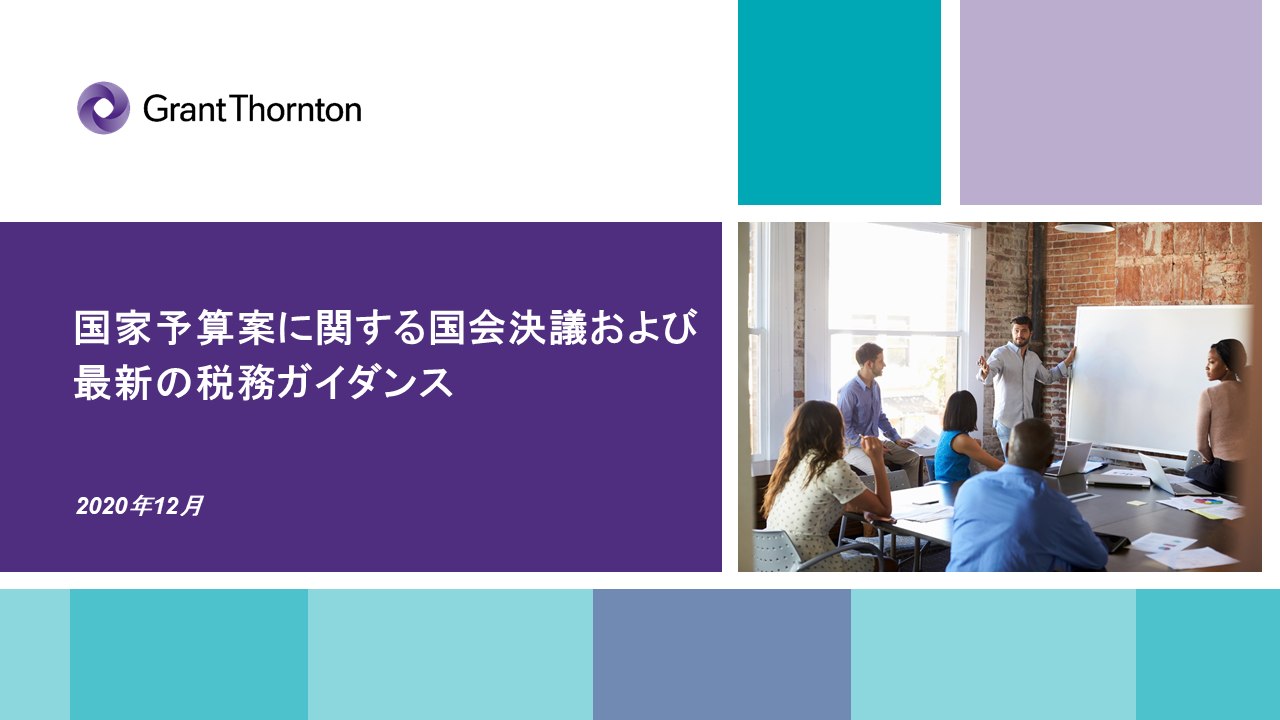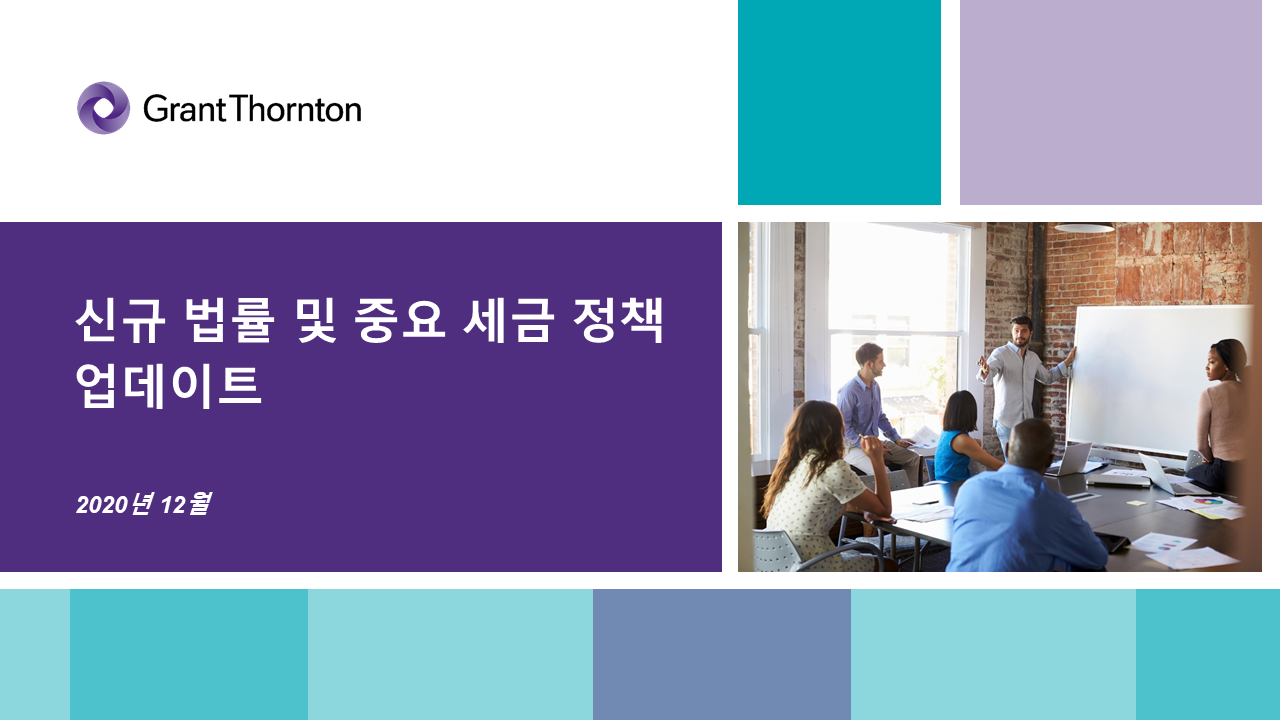-
International Financial Reporting Advisory Services
IFRS reporting advisory serivces of Grant Thornton are carried out by our dedicated team with expertise in IFRS implementation.
-
Audit Services
• Statutory audit • Review of financial statements and financial information • Agreed-upon procedures • FRAS services • Compilation of financial information • Reporting accountant • Cross-border audit • US GAAP audit
-
Audit Quality
We have various methods of monitoring our system of quality control and engagement quality, including real-time involvement of coaches and national office personnel on select audit engagements, reviews of issuer audit engagements prior to archiving by someone outside of the engagement team, and internal inspections of assurance engagements and the system of quality control.
-
Audit Approach
Audit Approach
-
Licensing services
Licensing services
-
International tax planning
Our extensive international network provides us with significant resources to meet all your expansion goals. We strive to develop commercially focused and tailored tax strategies to minimise tax exposures and maximise business efficiency.
-
Expatriate tax planning
We have a broad knowledge base and skills to assist you keep your personal income taxes to a legitimate and reasonable level, while remaining compliant with legislation. We can develop a personalised package for each key employee to take maximum advantage of the exemptions and incentives available.
-
Tax advisory
We will review the proposed business model and transactions and advise on tax implications and recommendations to optimize the tax opportunities under the local regulations and treaties which Vietnam entered into. Furthermore, we coordinate with our GT global tax team to provide a comprehensive tax advisory for the countries involved in the business model and transactions.
-
Tax compliance services
This service is designed to assist enterprises to cope with the statutory tax declaration requirements in line with the Vietnamese tax laws as well as the frequent changes and updates in tax laws.
-
Tax health check
Our Tax Health Check involves a high-level review of specific tax areas to highlight the key issues that need to be rectified in order to reduce tax risks. Through our extensive experience, we have identified key risk areas in which many enterprises are not fully compliant or often overlook potential tax planning opportunities. Our tax health check service represents a cost-effective method to proactively manage risks and reduce potential issues arising as a result of a tax inspection.
-
Transfer Pricing
Transfer pricing is a pervasive tax issue among multinational companies. In Vietnam, the tax authorities require special documentation to report related party transactions. Compliance with transfer pricing regulations is an important aspect of doing business effectively in Vietnam as failure to do so may result in significant penalties.
-
Tax due diligence
We conduct tax due diligence reviews of target companies to analyse their tax exposure and position in relation to acquisitions, mergers or consolidations. We are able to integrate this service with our Advisory Services department in order to offer a comprehensive, holistic due diligence review.
-
Customs and international trade
Our experienced professionals can help you manage customs issues more effectively through valuation planning and making use of available free trade agreements. We also assist Clients in optimising their customs procedures by making use of potential duty exemptions and efficient import-export structures. Risk mitigation activities include customs audit defense and compliance reviews.
-
M&A Transaction
We advise numerous foreign investors on efficient tax structures for their investments. Our experience allows you to consider all the options and set up a corporate structure that meets both operational and tax efficiency requirements. In short, the structure that is best for you.
-
Industrial Zones – Picking A Location For Your Business
Grant Thornton Vietnam’s one-stop services are designed to provide comprehensive support to both new and current investors who are planning to expand or restructure their business in Vietnam. Our professionals have established strong working relationships with landlords, property developers and authorities at various localities. With extensive experiences in liaison with the relevant agencies, we offer assistance including negotiation on land rental rates and efficient management of licensing process. Our customized and flexible solutions can bring benefits of cost efficient location, accelerate licensing process, and optimize tax opportunities while remaining in compliance with legislation.
-
Tax Audit Support
Tax audit support services provide comprehensive assistance to your business in Vietnam. Recent tax practices have shown the general tendency of launching routine tax audit on yearly basis. Tax authorities have been effectively using more sophisticated methods to identify target entities from across different industry sectors.
-
Business Risk Services
Business Risk Services
-
Transaction Advisory Services
Transaction Advisory Services
-
Valuation
Valuation
-
Business consulting services
Finance Management Advisory
-
Accounting services
Accounting services
-
Taxes compliance within outsourcing
Taxes compliance within outsourcing
-
Payroll, personal income tax and labor compliance
Payroll, personal income tax and labor compliance
-
Secondments/Loan staff services
Secondments/Loan staff services
-
Compilation of the financial and non-financial information
Compilation of the financial and non-financial information
-
Accounting systems review and improvement
Accounting systems review and improvement
-
Initial setting-up for accounting and taxes systems
Initial setting-up for accounting and taxes systems
-
Management accounting and analysis
Management accounting and analysis
-
Comprehensive ERP system solution
ERP software is a tool for business operations, production management, order processing and inventory in the business process. Today, ERP software for small and medium businesses has been greatly improved to help businesses manage their business better. The article below will answer all relevant information about what ERP software is and offer the most suitable ERP solution for businesses. Let's follow along!
-
Analyze Business Administration data
We believe in the value that data can bring to the success and development of every business. Our team helps design data architecture supported by tools, to support business governance and provide useful information to management.
-
Financial reporting compliance solution package
Putting financial issues at the heart, this service helps ensure that financial reports for customers comply with both the requirements of Vietnamese accounting regulations and standards (VAS) as well as reporting standards. international finance (IFRS).
-
Third-party ERP extensions
ERP is a long-term solution that requires long-term travel, not short-term. We understand that many businesses cannot deploy the entire ERP system at once due to many different reasons, instead businesses can deploy each part. Over time, these solutions can be expanded to accommodate improved business processes or can even link completely new processes across different departments.
-
Localize, deploy and rebuild the project
Quite a few ERP projects need to be implemented according to current Vietnamese requirements and regulations, but still comply with common international business requirements. These projects need some improvements and adjustments in the right direction.
-
Consulting on technology solutions
We support the selection and implementation of the most suitable solutions, ensuring business efficiency and performance. We will work closely with customers to plan, evaluate and implement the right technology investment strategies and solutions to meet the development needs of businesses.

-
Offshore company establishment service
Using the offshore company model will facilitate the owner in the process of transaction and expand overseas markets, take advantage of the tax policy with many incentives and protect the value of the family enterprise's assets.
-
Private Trust Advisory
The development of the economy with many modern financial instruments has brought many advantages and opportunities for the enterprises, but there are still certain potential risks in any type of business. So how to protect your asset value with an appropriate company structure while stay compliance with relevant regulations?
-
Our values
We have six CLEARR values that underpin our culture and are embedded in everything we do.
-
Learning & development
At Grant Thornton we believe learning and development opportunities help to unlock your potential for growth, allowing you to be at your best every day. And when you are at your best, we are the best at serving our clients
-
Global talent mobility
One of the biggest attractions of a career with Grant Thornton is the opportunity to work on cross-border projects all over the world.
-
Diversity
Diversity helps us meet the demands of a changing world. We value the fact that our people come from all walks of life and that this diversity of experience and perspective makes our organisation stronger as a result.
-
Contact us
Contact us
-
Available positions
Experienced hires
-
Available positions
Available positions
In this newsletter, Grant Thornton Vietnam would like to update our valued customers on important legal policies that have just been issued recently.
1. Resolution No.128/2020/QH14 on state budget estimation in 2021
On 12 November 2020, National Assembly issued Resolution No. 128/2020/QH14 on the state budget estimation in 2021. In Resolution 128, in addition to the contents related to the state budget, National Assembly also agreed other important issues, including the decision on not raising the base wage and the poverty line in 2021 as in 2020. Besides, National Assembly also assigned Government to guide the calculation of deductible expenses of business and organizations for the expenses of supporting and sponsoring Covid-19 epidemic prevention and control activities when determining taxable income to meet the real situation and encourage contribution of the business community throughout the country.
2. Decree No. 128/2020/NĐ-CP on the regulations on sanctioning of administrative violations in customs and Official Letter No. 7594/TCHQ-PC on summary of new regulations in Decree 128/2020/NĐ-CP
On 19 October 2020, the Government issued Decree No. 128/2020/NĐ-CP on the administrative penalty on violation in customs. Decree No. 128/2020 takes effect from 10 December 2020.
In which, some highlight contents of Decree No. 128 are as follows:
- Add a number of sanctions for some newly arisen violations: Counterfeit goods originating from Vietnam, goods with images and contents showing improper national sovereignty or other content affect the security, politics, economy, society, and diplomatic relations of Vietnam; violating regulations on labeling of goods, etc.
- Some case with no administrative penalty for customs:
- Goods and means of transport brought into Vietnam under an unexpected event or force majeure event that have been notified in writing to the customs authority or other competent authority in accordance with the law and are taken out of Vietnam after the force majeure has been overcome.
- Making supplemental declarations in the customs documents within the time limit prescribed in Clause 4 Article 29 of the Law on Customs 2014.
- Customs declarants comply with written instructions and handling decisions of competent agencies related to the determination of tax obligations.
In addition, in order to help businesses comply with new regulations, on 30 November 2020, General Department of Customs issued Official Letter No. 7594/TCHQ-PC to summary and introduce new regulations mentioned in Decree No. 128/2020/ND-CP.
3. Official letter 5189/TCT-CS summarize notable points of Decree 126/2020/ND-CP on tax administration
On 7 December 2020, General Tax Department issued Official letter 5189/TCT-CS summarising on notable points of Decree 126/2020/ND-CP on tax administration regulations in order to support the enterprises to grasp the changes of the new regulations compared to the previous regulations. Some of the key changes are summarized in the Official Letter 5189 including:
- Tax administration with taxpayers during the temporarily suspension period
- Manage other revenues of the state budget
- Regulations on tax registration
- Regulations on supplemental tax declaration
- Regulations on Value Added Tax (“VAT”), Corporate Income Tax (“CIT”), Special Consumption Tax (“SCT”) and Natural Resource Tax (“NRT”)
- Taxes on income from dividends and profits shared
- Tax declaration for a number of activities such as lottery, electricity generation, gas and petroleum, property rental
- Changes in conditions for tax declaration on monthly, quarterly, annually basis and each time when the obligation arises
4. Official Letter No. 4964/TCT-VP on providing information on provisional quarterly CIT payments
On 20 November 2020, General Taxation Department issued Official Letter No. 4964/TCT-VP to further clarify the new regulations of Government on provisional payment of CIT from Decree No. 126/2020/ND-CP. Accordingly, in order to resolve the situation that enterprises do not make provisional quarterly CIT payments and delay the provisional payment until the deadline of the fourth quarter, the Government prescribed the calculation of late payment interest for provisional CIT payments in the year.
Specifically, if enterprise underpaid the provisional CIT payments in the first 3 quarters of the year (75% of the payable tax amount), the enterprise has to pay late payment interest on the underpaid tax amount from the day following the last day of the third quarter CIT provisional payment deadline to the date of paying the underpaid tax to the stage budget.
According to the explanation by tax authority, the above regulation originates from the fact that enterprises have annual business plans for the business operation and will be completely in control of the determination/ estimation the business results in the year to proceed with temporarily CIT payment. Therefore, the case when an enterprise has unexpected business results in the fourth quarter is rare.
Regarding the effective tax period which this new regulation is applicable, General Tax Department is reporting to higher level for further guidance.
5. CIT and PIT on quarantine costs for foreign experts during the Covid-19 epidemic
In order to meet the actual needs of business that incur expenses for foreign employees during Covid-19 epidemic, General Tax Department and Hanoi Tax Department have issued guidelines on this issue as follows:
Official Letter 5032/TCT-CS dated 26 November 2020 of the General Department of Taxation
- For hotel expenses for foreign experts during quarantine period in which the labour contract contains the house rent paid by the enterprises to the employees, this expense shall be included in deductible expense when calculating CIT. Airfares with sufficient valid invoices and documents as required are also considered as deductible expenses of the business.
- In term of PIT, the cost of quarantine against the Covid-19 epidemic when entering Vietnam by expat experts is considered to be the benefit of the employees and is subject of PIT.
Official Letter 97748 / CT-TTHT dated 10 November 2020 of Hanoi Tax Department
- In case in Covid-19 epidemic, if the enterprises incurs quarantine expense for foreign experts to work in Vietnam in accordance with the law, and the expenses are clearly stated in the name beneficiaries, those expenses are included in the employee’s income which are subject to PIT. These expenses are also considered deductible expenses when determining CIT if they are welfare expense not exceeding 01 month’s average salary actually made in the tax year of the business.
However, enterprises should note that there are still other local tax authorities that have their own different opinions on the above costs. Therefore, enterprises need to conduct a detailed classification of quarantine expenses incurred to consider applying appropriate tax treatment according to regulations, and to minimize the risk of tax recollection.
6. Official Letter No. 99066 / CTHN-TTHT on the date of issuing electronic invoices
On 13 November 2020, Hanoi Tax Department issued Official Letter No. 99066 / CTHN-TTHT on the date of issuing electronic invoices. Specifically, from now to 30 June 2022 when Decree 123/2020/ ND-CP comes into effect, other provisions on invoices are still in effect. Therefore, according to current prevailing regulations, an e-invoice must contain all required contents (including the seller’s electronic signature) to be identified as a legal invoice. For this case, the signature of the invoice is made after the date of issuance of the e-invoice, the Company must base on the date of the e-invoice issuance to determine the obligations to declare tax, pay tax and accounting as prescribed.













